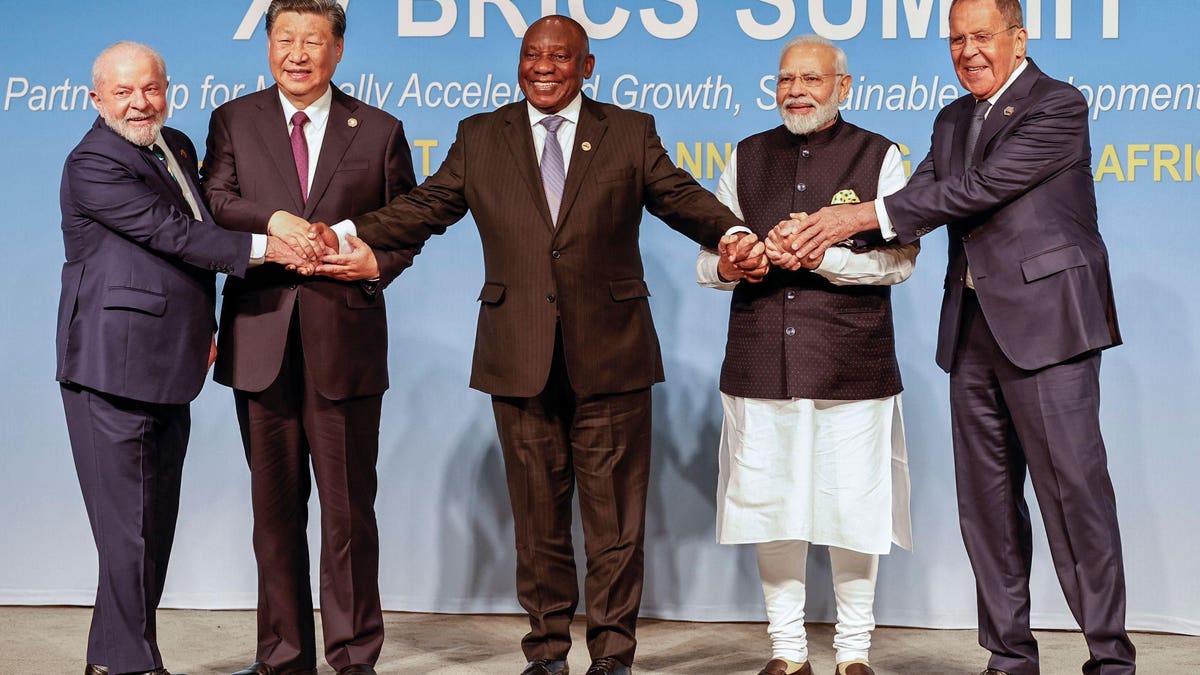At a recent summit in Johannesburg, South Africa, the Brazil-Russia-India-China-South Africa (BRICS) group, which some believe can counter-balance the West, for the first time in over a decade, opted to invite six new members: Argentina, Egypt, Ethiopia, Iran, Saudi Arabia, and the United Arab Emirates (UAE
UAE
Saudi Arabia’s inclusion doesn’t just solidify an already extensive economic relationship as China’s largest oil supplier, providing China with a massive 1.9 million barrels per day in August 2023, but also solidifies China’s increasing leverage over Saudi Arabia following its brokering of the Riyadh-Teheran détente, in which PRC outmaneuvered the United States.
Iran has been a longstanding strategic partner of China for years, with Beijing and Tehran enjoying robust security and economic ties. China has been Iran’s largest trade partner for over a decade, focusing on oil and gas development. Iran, the OPEC founding member, sits on the second-largest natural gas resources in the world and fourth-largest oil reserves.
The Kingdom’s inclusion following Chinese-bargained Saudi-Iranian normalization goes a long way toward realizing Beijing’s vision of a Middle Eastern security architecture. The UAE’s involvement in the Israel-India-UAE-USA agreement (I2U2) to provide India hydrocarbons while containing Chinese aspirations may be affected by the Emirates joining BRICS.
While one-half of the BRICS’ newest cohort dominates traditional hydrocarbons, the other half is engaged with the fuels of the future, especially rare earth elements (REEs), which are vital for all green technology. Egypt, whose oil production is a trickle compared to Saudi but whose offshore Zohr LNG field is the largest natural gas discovery in the Mediterranean, also has massive solar potential in the desert, significant REE endowments, and human capital to match.
Argentina has massive natural gas potential, with some of the largest LNG-shale deposits in the world, but it sits on a veritable ocean of white gold in the “lithium triangle,” being the world’s third-largest producer of lithium, which is vital in modern battery production. Ethiopia has a wide array of REEs and industrial minerals dispersed throughout its mountainous landscapes.
Together, this conjunction of energy resources seems to spell good news for the bloc China would like to lead. BRICS, in conjunction, would control 42% of the world’s oil supply, and its Chinese-driven monopoly on REE refining would be consolidated with plenty of resource inputs. However, those cheering the downfall of the current global energy order may not want to look to BRICS to pull it off.
Already, BRICS is experiencing internal divides and dissent. Argentina has cast into doubt its future membership as while the incumbent administration has expressed interest, most of the major candidates for the upcoming election (including the new frontrunner Javier Milei) have openly stated they would not join if elected. Ethiopia’s decision to join has its leadership celebrating it as a “great moment”, although President Abiy Ahmed’s hold on authority is shaky at best, beset by rival claimants to power.
BRICS’ fundamental problem is that many of its members have fundamental strategic rivalries. Argentina and Brazil have the friendliest rivalry in the bloc, and even that is beset by constant economic disagreements. Iran and Saudi Arabia, being the leading Sunni and Shi’a powers respectively, only lately normalized relations and, until recently, fought proxy wars in Syria and Yemen. These may inflame at any moment.
Saudi Arabia and the UAE were seen as partners just a decade ago, with their disagreements now causing an open split between the two. Formerly united by a common American-led security architecture and developmental imperatives, they now openly disagree on the tenor of their respective domestic reforms and the UAE’s cooperation with the USA and India via the I2U2 Agreement.
India and China have a fundamental strategic rivalry over cooperation with Pakistan, border disputes, and competing economic reach in Central Asia and East Africa. Indian Prime Minister Narendra Modi expressed concern about adding countries too closely aligned with China to BRICS.
Beyond the fractious divides within BRICS, many of these countries have very different relationships with the US and the international system. China is a strategic adversary to the US but a pillar of the international economic order, while Russia and Iran remain outcasts, and Saudi Arabia plays the role of a balancing power that may eventually defect. In comparison, India and the US enjoy close economic and security ties, while Argentina and Brazil are far more intertwined with Washington than with Beijing despite some deep-set anti-Americanism.
Even if these very significant strategic problems were solved, the biggest problem for those prophesizing a Chinese-led takeover of global energy via BRICS is that BRICS is a redundant institution for this purpose. China’s Belt and Road Initiative provides far more leverage and control than the unwieldy BRICS mechanism ever could. Even if China and its BRICS partners were determined to institutionalize such relationships on a state level, the Shanghai Cooperation Organization already exists to address that endeavor. For the energy suppliers, alternatives, such as the OPEC cartel, provide far more financial return and leverage vis-a-vis international markets and Western consumers.
Further, BRICS, for now, lacks independent institutions, a unifying cause, an ideological basis, or a treaty network. It is fundamentally divided against itself and cannot stand for much beyond choice photo opportunities.
Half the bloc wants the American order overthrown, the other half wants to do business with everyone. Half of the camp also hates the other, with much of the motivating fears coming from inside the alliance, not beyond it. It is not an adversary to NATO, nor is it a new G8 or G20. Say what you will about the unwieldy Western alliances, NATO doesn’t have its members fighting proxy wars against one another or engaged in border skirmishes, dormant Turkey-Greece tensions aside.
China, Russia, and Iran may all be adversaries scheming against U.S. predominance and trying to split the West but rest assured, they will not achieve this via BRICS.
Read the full article here





